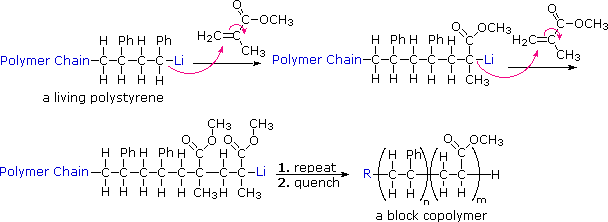Recycling Polymers: Promoting a Round Economic Situation
Wiki Article
Making The Most Of the Potential of Polymers: Discover the Diverse Benefits and Practical Uses
The multifaceted benefits and practical usages of polymers proceed to develop, using ingenious solutions to intricate difficulties. By exploring exactly how polymers can enhance product durability, drive sustainability initiatives, revolutionize medical care solutions, and lead the method for future technological developments, we can uncover a globe of opportunities waiting to be harnessed.Significance of Polymers in Modern Industries
Polymers play an essential function in modern markets, acting as versatile materials that drive innovation and performance across a large range of fields. These complicated molecules, made up of repeated subunits, have actually changed industries such as vehicle, aerospace, electronics, medical care, and more. In the vehicle market, polymers have actually made it possible for the growth of light-weight yet sturdy parts, enhancing fuel performance and general performance. Aerospace markets depend on polymers for their high strength-to-weight proportion, essential for aircraft and spacecraft building and construction. The electronics market take advantage of the protecting buildings of polymers, essential for producing circuit boards and electronic tools (Polymers). Additionally, polymers are thoroughly utilized in the medical care industry for medicine delivery systems, medical gadgets, and biocompatible materials. Their flexibility, toughness, and cost-effectiveness make polymers crucial in modern production procedures, promoting improvements and driving progress in different markets worldwide. Accepting the capacity of polymers is crucial to unlocking more developments and dealing with the progressing requirements of today's industrial landscape.Enhancing Product Toughness With Polymers
With a concentrate on durability and durability, incorporating innovative polymer innovations right into product layout has actually ended up being a keystone of improving toughness in contemporary manufacturing processes. Polymers use a large range of homes that add to the total toughness of items. One essential advantage is their resistance to deterioration, chemicals, and weathering, making them optimal for use in different sectors where direct exposure to extreme problems prevails.Additionally, polymers can be tailored to meet particular durability requirements, allowing producers to tailor items according to their intended use and anticipated life-span. By including polymers into item parts, suppliers can improve toughness and impact resistance, lowering the probability of breakage or wear in time.
In addition, polymers are light-weight yet sturdy, providing toughness without adding unneeded weight to items. This particular is specifically valuable in industries such as aerospace and automobile, where lightweight products are necessary for boosting fuel effectiveness and total performance.
Sustainability Developments Through Polymer Innovation
In the realm of modern-day production and item design, the ingenious application of polymers is driving significant innovations in sustainability techniques. Polymer development plays a vital role in improving sustainability by providing solutions that reduce ecological effect across various markets. One key facet where polymers stand out remains in enabling the development of light-weight yet long lasting materials that add to sustain effectiveness in transportation official source and reduce overall energy usage. Furthermore, the recyclability and biodegradability of certain review polymers additionally advertise sustainable practices by reducing waste and contamination.Additionally, advancements in polymer modern technology have resulted in the development of bio-based and eco-friendly polymers, originated from natural sources such as plants, that provide a more lasting alternative to typical petroleum-based plastics. These eco-friendly polymers not only help minimize reliance on fossil fuels however also reduce greenhouse gas exhausts during production. By integrating these cutting-edge polymers into making processes, companies can reduce their environmental footprint and move in the direction of even more sustainable practices, lining up with worldwide initiatives to deal with environment adjustment and promote a circular economy.
Polymers in Medical Care: Revolutionizing Medical Solutions

Among the essential locations where polymers are making significant strides remains in the development of targeted drug delivery systems. By encapsulating drugs within polymeric nanoparticles or micelles, researchers can improve medication security, enhance bioavailability, and allow controlled release, leading to more efficient therapy programs with lowered negative effects.
Furthermore, polymers contribute in the field of regenerative medication, where they are used to look at this now create scaffolds that mimic the extracellular matrix, offering support for cell development and tissue regeneration. This innovation holds enormous pledge for repairing damaged organs, advertising injury healing, and advancing personalized medicine methods.
Fundamentally, the combination of polymers in healthcare is driving technology, improving therapy efficacy, and eventually boosting client results in means formerly thought unattainable.
Future Applications and Developments in Polymer Innovation
Advancing at the forefront of clinical exploration, polymer innovation continues to pave the means for groundbreaking applications and technologies forming varied industries. Furthermore, polymer nanocomposites are enhancing the mechanical and thermal properties of products, leading to more powerful and lighter components in aerospace and automotive sectors. Looking ahead, researchers are checking out the potential of shape-memory polymers for applications in robotics and biomedical devices, where materials that can "remember" and return to their original forms provide amazing possibilities for development.Verdict

Report this wiki page